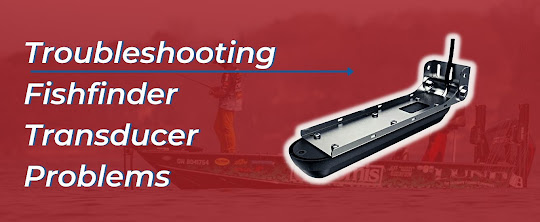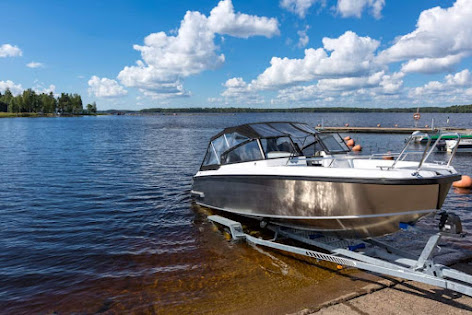How to Troubleshoot Fish-Finder Transducer Problems
Knowing how to fix a fish finder that isn't working is a good skill to have as a fisherman.
After all, the quicker the problem is resolved, the quicker
you can get back to fishing and enjoying time on the water. Below, Lund Boats
Product Manager, Rory Wiebe, explains how to troubleshoot common fish finder
transducer issues and offers tips for getting the best performance from your
chart and electronics.
The Fish-Finder Cannot Read the Bottom
An improperly installed transducer will not effectively
transmit and receive sonar signals, and can cause problems with the fish
finder's display of bottom depth. Wiebe recommends the following
troubleshooting sequences to fix the issue.
·
Make sure the power Transducer is properly
seated inside the mounting bracket. If the transducer hits an object, such as a
tree trunk for example, it may be out of place.
·
With the boat on the trailer, ensure the
transducer is horizontally level (i.e. from port to starboard). Measure from
the left side of the transducer dividing line to the top of the beam. Repeat on
the right side. If measurements differ, loosen the mounting screws and adjust
the level of the transducer.
·
Holding the ruler lengthwise back and forth,
press its top edge against the hull of the boat and extend it along the
transducer. The level of the transducer installed on the waterline will follow
a similar angle as a ruler. If your fish finder is in this mode but has trouble
reading the bottom at high speeds, Wiebe suggests adjusting the transducer down
a few degrees to improve performance.
·
Move the ruler, if necessary, to the inner side
of the transformer to check its height. The outside of the transducer should
extend just below the top edge of the ruler, which represents the water line. A
transformer placed too high may not have consistent contact with water and not
function properly. However, one set too low can create a rooster's tail-like
spray and may affect the performance of the boat.
·
For the best high-speed operation and sharpest
picture, increase the ping speed setting to maximum.
Side Scan Works only on One-Side
This is caused by something blocking the side-scan
transducer signal. If multiple power Transducers are installed, the side
imaging Transducer must be installed below the other Transducers.
The engine can be another obstacle. Clip the engine up out
of the way of the transducer beam.
Fish Finder Error Messages related to the Power Transducer Connection or
Signal
Inspect the power Transducer cables and connections. A
broken cable, as well as damaged or missing pins in its connection area, are
some of the reasons why a GPS device cannot receive data from the power
Transducer. Repair or replace to correct the problem.
Next, review your fish-finder settings, and make sure it's
associated with the power Transducer you want. Connection mix-ups can sometimes
occur on networks with multiple fish finders and transducers.
With the fish finder running, place your hand in the water
and under the transducer. You will feel a pulsing or clicking sensation when it
is working correctly. If you don't, it's probably time for a replacement.
Tips to get the best performance from your fish
finders and electronics
Read your GPS device owner's manual and installation
instructions.
Do not install the transducers behind a rivet line, I-Beam,
or any other components capable of causing water turbulence.
Use the power Transducer mounting plate to prevent drilling
unnecessary holes in your Lund boat. Route the power Transducer and network
cables away from batteries and power cables to prevent noise and interference
on electronic screens.
Maintain tight and clean connections between the power
cables and battery terminals.
Follow the manufacturer's recommended wire gauge when extending cables for electronic devices. Adjust the locator settings (e.g., sensitivity, color palette, sonar frequency, etc.) to fine-tune performance.
Related Articles:




Comments
Post a Comment